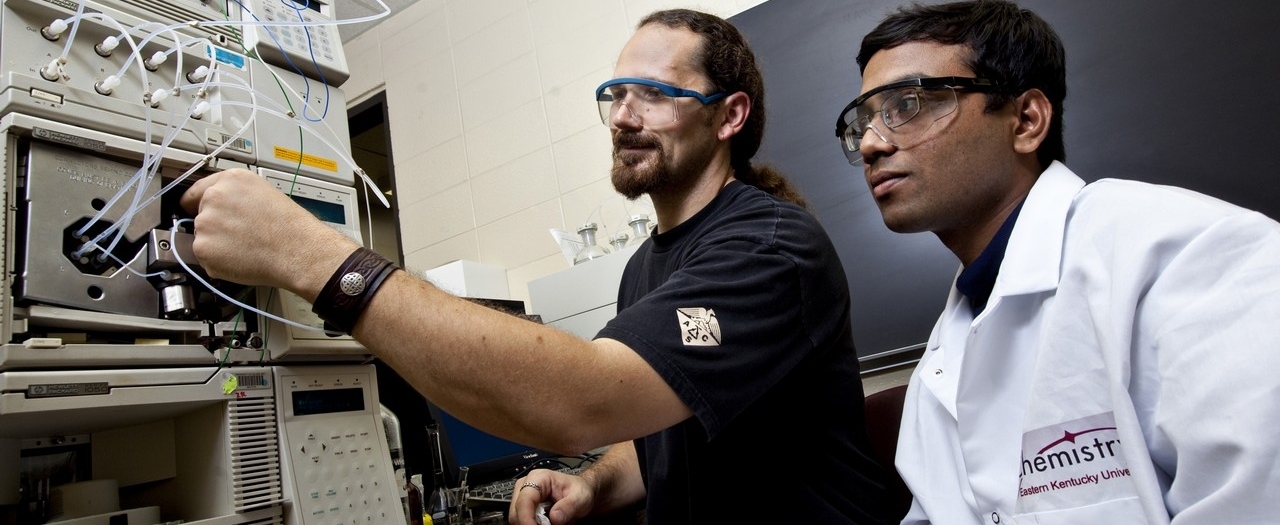Eastern Kentucky University exceeds similar benchmark institutions and other comparison groups on measures of student engagement, especially in the areas of academic challenge and experiences with faculty.
According to the 2015 National Survey of Student Engagement (NSSE), the University’s freshmen and seniors alike rated EKU “significantly better” than all its benchmarks and the national average on all academic challenge indicators (higher-order learning, reflective and integrative learning, learning strategies and quantitative reasoning) as well as measures related to experiences with faculty (student-faculty interaction and effective teaching practices).
EKU also fared well in the campus environment category. First-year students and seniors rated Eastern ahead of its benchmarks and the national average in quality of interactions and supportive environment.
In almost every NSSE category, Eastern showed steady improvement over the past three years.
Speaking at the EKU Board of Regents meeting on Jan. 25, Dr. Janna Vice, provost and senior vice president for academic affairs, said the NSSE results “confirm our confidence in the high quality of our faculty and our commitment to keeping our promise to students. I couldn’t be more proud.”
The survey also showed that the percentage of EKU first-year students and seniors who rated their experience as “excellent” or “good” and who said they would “definitely” or “probably” choose to attend the institution again given the opportunity exceeded the average for benchmarks, southeast public institutions and the nation. In each case, 86-87 percent of the first-year students and seniors responded affirmatively.
The NSSE, administered to a sample of second-semester freshmen and exiting seniors, was designed to assess the extent to which students are engaged in empirically derived good educational practices and what they gain from their college experiences. It differs from other surveys that are more oriented to student satisfaction than to specific educational outcomes.
The NSSE results are integral to a number of planning and reporting processes at EKU, said Dr. Tanlee Wasson, assistant vice president for institutional effectiveness and institutional research.
Carol Geary Schneider, president of the Association of American Colleges and Universities, said the NSSE findings “help campuses explore the connections between their expectations for student achievement and what students actually experience. The survey results also encourage faculty to delve into the research on campus practices that support – or frustrate – liberal education.”
The NSSE survey is sponsored by The Carnegie Foundation for the Advancement of Teaching. To view the complete EKU results, visit oie.eku.edu/university-level-assessment.
